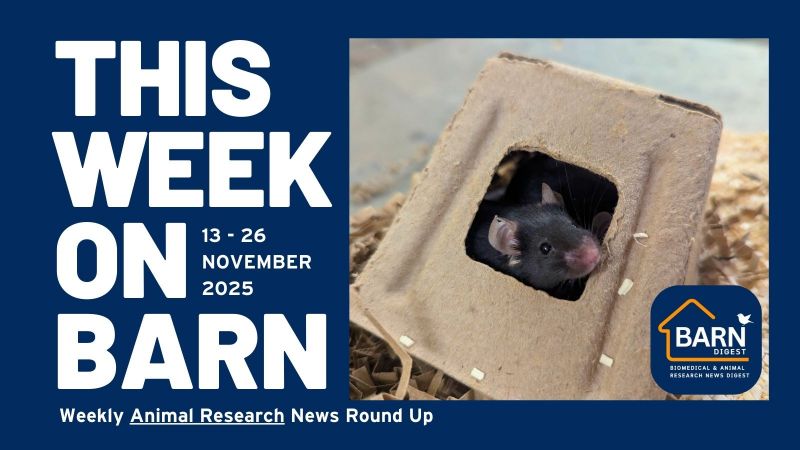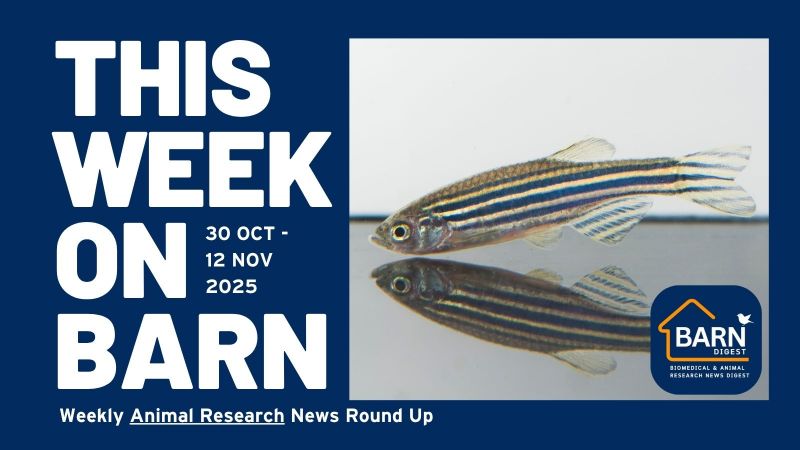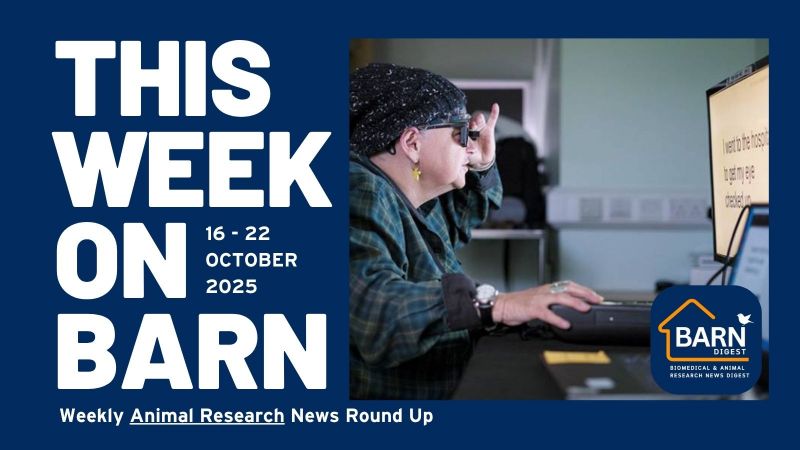
The Biomedical Animal Research News (BARN) Digest collates animal research news from UAR’s 150+ member organisations into one, easy to access, feed. These animal research related stories include topics such as: medical studies and advancements; animal welfare and 3Rs news; funding, regulatory, and policy news; and conservation and environmental research that involves animal testing.
Each week, we pick the most interesting, groundbreaking, and important news to feature in a weekly news roundup. After a short pause, in this round up we feature news stories from the last two weeks, 28 May - 10 June 2025.
View BARN to see daily news updates from UAR members.
BASIC RESEARCH
Groundbreaking discovery of 'new' pain target brings hope for those with chronic pain
UNIVERSITY OF ABERDEEN | MICE
"In a groundbreaking discovery, chronic pain has been shown to be physiologically different from acute pain and now scientists have the roadmap for how to target it. The team identified that in the nervous system chronic pain is processed differently from the pain that comes from an injury or over exertion. Crucially, they found a new and distinct separate physiological pathway for this chronic type of pain, which means it can now be a target for future therapies.
They were able to differentiate between the two types of pain by genetically silencing neuronal pathways in a mouse model and then testing the theory in practice in a patient with a spinal cord injury that blocked ‘standard’ pain but spared the newly discovered pathway, in the Taipei Medical University Hospital in Taiwan."
https://www.abdn.ac.uk/news/24440/
DRUG DEVELOPMENT
Combination drug therapy prolongs the life of mice
UCL | MICE
"The combination of two cancer drugs, rapamycin and trametinib, can extend the lifespan of mice by 30%, according to a study led by researchers at UCL and the Max Planck Institute for Biology of Ageing, Germany.
In the latest study, the researchers gave mice either trametinib alone, rapamycin alone, both, or neither, with the drugs delivered in their food from six months of age onwards. The researchers found that trametinib alone extends the lifespan of mice by 5-10%, while rapamycin alone increases lifespan by 15-20%. When used together, the drugs have a synergistic effect that extends the life of the mice by around 30%."
https://www.ucl.ac.uk/news/2025/may/combination-drug-therapy-prolongs-life-mice
Early results show new GDNF gene therapy treatment is safe
PARKINSONS UK, ASKBIO | GDNF RELIED ON STUDIES IN MICE, RATS AND MONKEYS
"Researchers in the US have shared their first results from a study looking at using a gene therapy, called AB-1005, to increase brain cells’ production of a growth factor called GDNF. Gene therapy is a treatment that makes small changes to a person’s genetic information within a specific type of cell. These changes enable cells to do more of, or start doing, a job. Such as, producing a growth factor."
Article: https://www.abdn.ac.uk/news/24440/
Studies: https://www.sciencedirect.com/science/article/pii/S0928098725000478
https://pmc.ncbi.nlm.nih.gov/articles/PMC7458523/
First treatment for rare disease approved by UK medicines regulator
UCL | MICE
"The first ever treatment for the rare neurodegenerative disease Friedreich’s ataxia – for which UCL and UCLH led the UK trial – has been approved for use in the UK by the medicines’ regulator.
Friedreich’s ataxia affects about 22,000 people worldwide. It is a genetic condition that typically emerges in childhood and causes progressive loss of coordination, muscle weakness, cardiac weakness, diabetes, curvature of the spine and fatigue, often leading to wheelchair reliance, and premature death."
https://www.ucl.ac.uk/news/2025/jun/first-treatment-rare-disease-approved-uk-medicines-regulator
Mouse study: Abstract 15376: Nrf2 Agonist Omaveloxolone Improves Cardiac Function in Mice With Friedreich's Ataxia
https://www.ahajournals.org/doi/10.1161/circ.146.suppl_1.15376
Last edited: 10 June 2025 14:02



